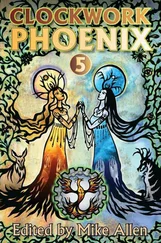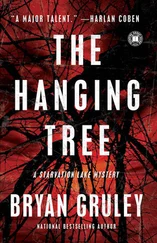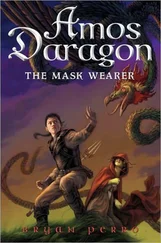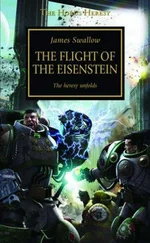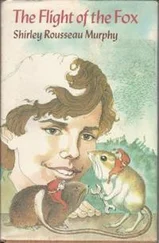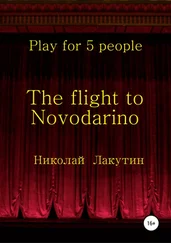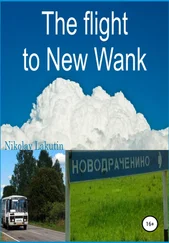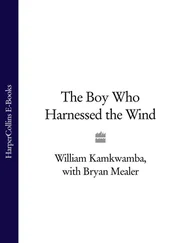‘It’s my first time in East Prussia. I never realised how far from home it is.’
‘Were you in France?’ Paul asked.
‘No, I was sent straight here.’
Karl and Peter sat quietly between the driver and their parents. Paul held Leyna on his lap. Ida watched the military trucks going north through the pine forest, which had been planted on the wide sandy spit in the late nineteenth century to prevent it from being washed away by the sea.
The family returned home for the party in Paul’s honour. Talk focused on everyone’s plans for after the war. The mood was subdued. Most of the older men seemed certain the war would soon be over, but Paul wouldn’t be drawn.
On the morning of his departure the children followed him and Ida as they walked to the station. The next day Paul was due at a base in Poland. He didn’t know when or if he would be permitted another leave. On the platform, he kissed Ida and the children. He was preoccupied, as if his military duties were more important now than his family, but he had always been like that when he was thinking about work. Now, though, he wasn’t just going to work in the shop behind their home, he was leaving for a month, a year, two years? No one knew.
His father’s indifference that morning stuck in Karl’s mind. The train pulled away, clanking along the tracks. Ida and the children were left alone on the platform to watch it disappear from view. They remained staring down the narrowing tracks long after the train vanished, as an uncanny calmness similar to the silence that follows the first heavy snow each year enveloped the family. Leyna tugged at her mother’s hand. Their sister’s movement caused the boys to glance up at their mother. ‘I want to go home,’ she said.
They walked down the steps from the platform, across the steel tracks slick with ice and to the path in the field. There, they fell into single file. A light snow began to fall. Karl, at the back, stopped to look up. The uniform sky provided nothing against which to distinguish itself as a sheet of ashen grey slowly descended over them. He tried to separate a single cloud from the mass so he could imagine the snow falling from that particular place, but the sky offered no depth of field, refusing to cooperate with Karl’s wish for something to recognise. The snowfall grew heavier, causing even the backdrop of the pallid sky to disappear in a white flurry.
Ida stopped to adjust her hat, leaned down and picked up Leyna.
When they reached the road, the cobbles were buried under a thin layer of fresh snow, which highlighted the imperfections in the road’s surface.
Tirskone, an elderly man from Powayen, the village nearest the station, often walked along the road with a shovel and a bucket of sand with which he smoothed the ground beneath an uneven cobble or poured sand into an empty hole before he inserted a new one. He kept stacks of stones in the brush at intervals along the roadside. Each year a government truck came from Königsberg and left a pile that Tirskone would move, five at a time, to his hiding places. Once Karl had crouched in the bushes to watch him.
Tirskone, like Paul, rarely spoke. When he did it was to make a request, delivered as an order, for a drink of water while he repaired the cobbles in the square. Now Karl glanced up and down the road, expecting to see the old man’s footprints: light snow rarely kept Tirskone indoors.
‘Let’s take the road this time. I don’t want to walk back through the forest while it’s snowing,’ Ida said.
Karl’s eyes were on the low hill that led into Germau less than a kilometre away. ‘Can I take the path?’ he asked.
‘Don’t be long.’
Ida glanced at Peter, shivering beside her. ‘You can come with me,’ she said. ‘You can play with your brother later.’
Karl followed the path into the forest to the brook below the church, imagining what the ancient Balt-Prussian tribe would do if they saw the Teutonic Knights escaping from their secret tunnel. He imagined some clan members pulling out their swords as they whispered among themselves in the undergrowth. Karl kicked up branches in the snow, until he found one that fitted his hands, so he could join the tribe slaying the invaders. He swung it to get a feel for its weight before sticking its tip into the snow beside him while glancing up the hill at the large church and caught his breath.
He decided to sneak up behind the church – it would be easier to surprise the enemy if he went that way. Crouching, he stalked through the woods. As the hill steepened, he picked up speed. When he reached a point from which he could approach the church directly, he broke into a run, crested the summit and darted out past the cemetery. At the corner, he raised his sword, jumped out in front of the church and swung wildly at a group of Knights. He thrust, parried and turned about until his arms ached, then plopped down into the snow, dizzy.
The clearing was empty. Nobody had walked up the hill that morning so the snow lay undisturbed. He could have killed a couple more, he thought, if he had come up the opposite side. He didn’t like playing this game with the other village children: they were younger and he could run faster so it was too easy to kill them. He remembered the youth group he would soon join – maybe he could play it with them. Most of the boys already in the group were from other villages and he knew they’d want to see the entrance to the secret tunnel in his church.
He stood up and walked across the field to a low wall a short distance above the square and looked away from the village towards Willkau, then looked back at the houses below. His mother stepped out of the shop door and called him.
‘Coming,’ he shouted.
She looked up at the wall. ‘I told you not to be long. Come here – you haven’t finished the jobs I asked you to do,’ she shouted.
He ran down the path, hoping she wasn’t angry. Even when she was, though, she was not like his father could be. While he would never admit it to her, he was relieved his father had gone again – even to the dangers of war.
Chapter 6
At the beginning of June, Ida received a short letter from Paul to say that he had been transferred east of Warsaw. He had included a photograph of himself sitting on the motorcycle that he rode to check the food supplies for the hospital he was supervising. ‘I’m not sure when you’ll hear from me again. There’s hardly enough time to sleep, much less to write letters,’ he concluded.
On the twenty-second, Ida was in the kitchen getting breakfast for the children with the radio on. As she leaned down to take a tray out of the oven, an announcer interrupted the music to introduce Joseph Goebbels, who said he had an urgent message from the Führer: ‘Weighed down with emotion, condemned to months of silence, I can finally speak freely to you, the German people. At this moment a march is taking place that, in its extent, compares with the greatest the world has ever seen. I have decided again today to place the fate and future of the empire and our people in the hands of our soldiers. May God help us …’ Before sunrise, Goebbels said, the army had launched an attack on Russia.
Ida thought of Paul on his motorcycle moving slowly alongside a column. The image frightened her, so instead she imagined him in a jeep behind the front line, and then at his desk in the office at the hospital. It was safer there, she told herself. She reminded herself of his arrival in Paris the day after it fell: he had avoided combat then, so why not now? Their love had cooled, but Ida wanted her children’s father to live. She tried to convince herself that when he finally returned for good he would be kinder to her and the children.
When Karl came downstairs half an hour later, she tried to think of a way to explain what had happened, but she didn’t understand why Germany was attacking Russia. She had understood the offensive against the French – during her childhood her father had talked incessantly about the injustices of the Treaty of Versailles – but she could think of no reason to justify their attack on Russia, especially since Russia in the Non-Aggression Pact had agreed not to attack Germany.
Читать дальше

